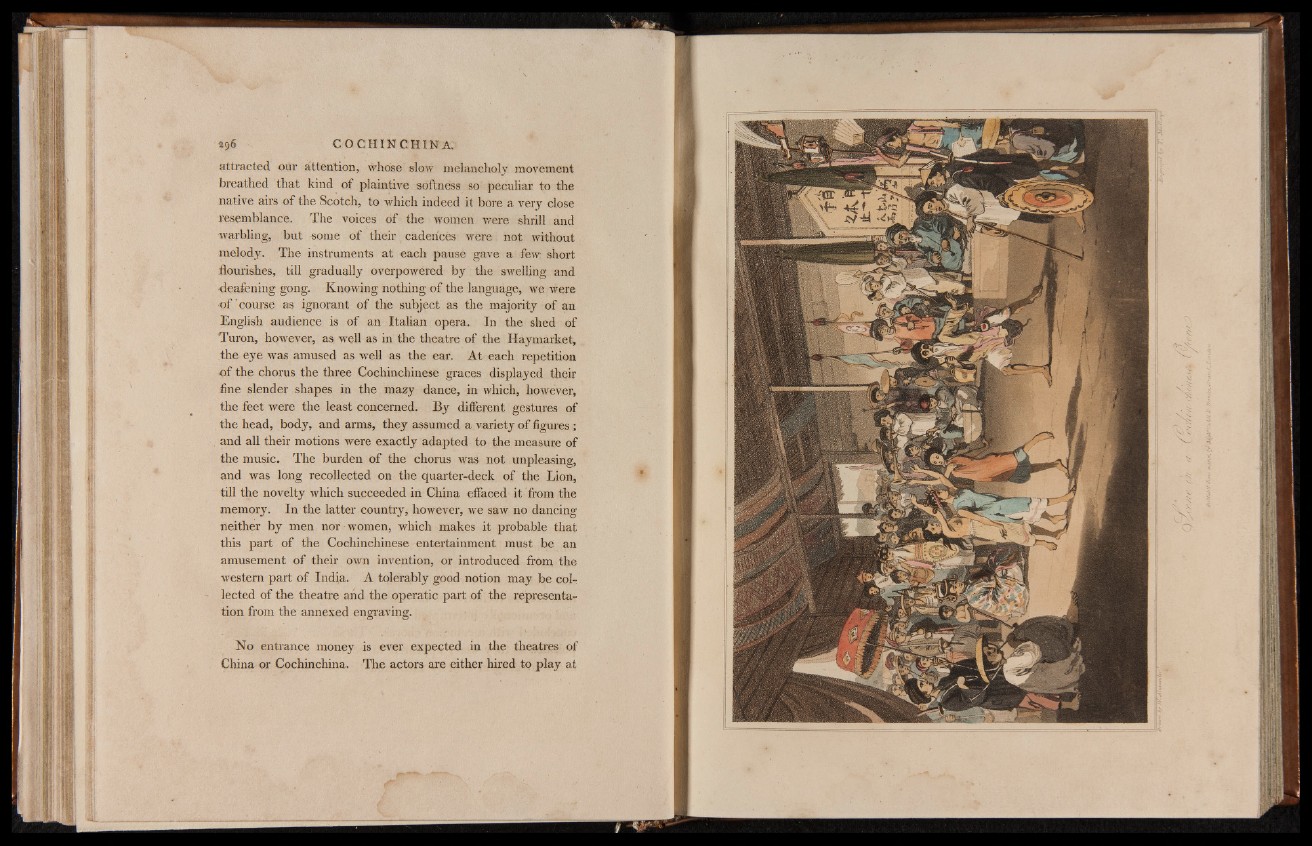
396 C O C H I N C H I N A .
attracted our attention, whose slow melancholy movement
breathed that kind of plaintive softness so peculiar to the
native airs of the Scotch, to which indeed it bore a very close
resemblance. The voices of the women were shrill and
warbling, but some of their cadences were not without
melody. The instruments at each pause gave a few short
flourishes, till gradually overpowered by the swelling and
•deafening gong. Knowing nothing of the language, we were
of course as ignorant of the subject as the majority of an
English audience is of an Italian opera. In the shed of
Turon, however, as well as in the theatre of the Haymarket,
the eye was amused as well as the ear. At each repetition
o f the chorus the three Cochinehinese graces displayed their
fine slender shapes in the mazy dance, in which, however,
the feet were the least concerned. By different gestures of
the head, body, and arms, they assumed a variety of figures ;
and all their motions were exactly adapted to the measure of
the music. The burden of the chorus was not unpleasing,
and was long recollected on the quarter-deck of the Lion,
till the novelty which succeeded in China effaced it from the
memory. In the latter country, however, we saw no dancing
neither by men nor women, which makes it probable that
this part of the Cochinehinese entertainment must be an
amusement of their own invention, or introduced from the
western part of India. A tolerably good notion may be collected
of the theatre and the operatic part of the representation
from the annexed engOr avingO.
No entrance money is ever expected in the theatres of
China or Cochinchina. The actors are either hired to play at